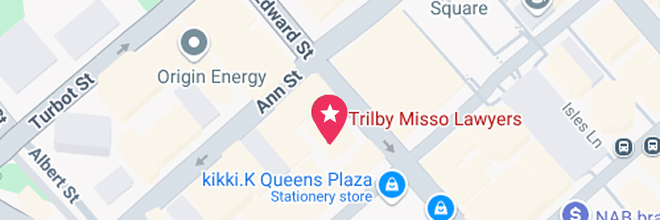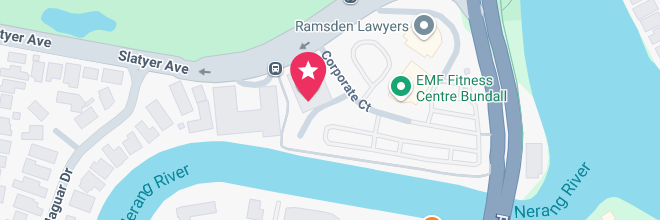Our Brisbane CBD Office
- Suite 400, Level 4/288 Edward St, Brisbane City QLD 4000
- (07) 3910 5470




Queensland Statute of Limitations: What You Need to Know
The statute of limitations is a critical legal concept that governs the timeframes for filing claims, including personal injury and compensation claims in Queensland. Understanding these time limits is essential to ensure you don’t lose your right to pursue compensation for an injury caused by another party’s negligence. This guide provides a comprehensive overview of the statute of limitations in Queensland and its implications for personal injury claims, making it especially relevant for those seeking advice from a compensation lawyer in Brisbane.
What is the Statute of Limitations?
The statute of limitations refers to the deadline within which a legal claim for compensation can be initiated after an incident occurs. In Queensland, these time limits are set out in legislation such as the Limitation of Actions Act 1974 (Qld). Once the limitation period expires, you lose the legal right to bring your claim to court, regardless of its merits.
The Standard Three-Year Limitation Period
For most personal injury claims in Queensland, including motor vehicle accidents, workplace injuries, and public liability claims, the statute of limitations is three years from the date of the injury or incident.
What Does This Mean?
Why Does the Statute of Limitations Exist?
The limitation period serves several purposes:
Exceptions and Special Circumstances
While the three-year limitation period applies in most cases, there are exceptions where the timeframe may be extended or shortened.
If the injured person is a child (under 18 years of age), the limitation period typically starts from their 18th birthday, meaning they have until they turn 21 to file a claim.
For individuals who are incapacitated or have a legal disability (e.g., mental illness), the limitation period may not begin until the disability is lifted.
In some cases, the existence of the injury may not be immediately apparent. For example:
In this case the court may extend the limitation period for a further year from when the inured party had knowledge (or reasonable means of knowledge) of that material fact. These provisions can only be relied on if a material fact is beyond the claimant’s means of knowledge, or reasonable means of knowledge. Failing to obtain legal advice within the necessary time limits will not satisfy this test to have the limitation period extended.
Different types of compensation claims in Queensland have specific deadlines to give notice of your claim:
Motor Vehicle Accidents
Motor accidents include any accident with a motor vehicle, motor cycle, truck, bus, as well as cyclists and pedestrians who are struck by a vehicle.
There are special rules where an unregistered vehicle or an unidentified vehicle is involved. In this case there is no CTP Insurer and much stricter and shorter time limits apply. There is a limit of 3 months to lodge the Notice of Accident Claim Form with the Nominal Defendant.
The Nominal Defendant is a Government body who acts as the insurer in these matters. If you do not lodge the claim form in the 3 month period, it is possible to lodge it within 9 months along with a reasonable excuse for delay. After the 9 month period, if the Notice of Accident Claim Form is not lodged with the Nominal Defendant, the right to claim is lost, in legal terms this is called statute barred.
Work Accidents
Work accidents include any injury sustained in connection with your employment.
Public Liability, out of home accidents
Public liability claims can happen in a variety of circumstances, but most commonly involve slips, trips and falls.
We recommend contacting a lawyer and discussing the specific circumstances of your accident so that you are properly protected and do not lose any rights by missing any important time limits.
The Risks of Missing the Deadline
Being statute-barred means you lose the legal right to bring a claim for compensation in relation to your injury. This includes compensation for:
Without this legal right, even if your injury is severe and life-changing, you cannot recover financial support from the responsible party.
Most injury claims are settled out of court, but if you are statute-barred, insurers and defendants are under no obligation to negotiate or offer a settlement. You lose the opportunity to pursue a settlement that might have covered your costs and provided financial stability.
Filing a claim is not just about monetary compensation; it is also about holding the negligent party accountable for their actions. If you miss the limitation period, the responsible party faces no legal repercussions for their negligence, and no precedent is set to discourage similar actions in the future.
Injury claims often factor in future costs, such as:
An injury can take a significant emotional toll on you and your loved ones. Compensation often includes acknowledgment of your suffering. Without the ability to pursue a claim, you lose the opportunity to obtain recognition and financial support for the distress caused by the injury.
Bringing a claim can provide a sense of closure and justice. Missing the limitation deadline denies you the opportunity to achieve this resolution, potentially leaving you with feelings of injustice or frustration about your situation.
How a Compensation Lawyer Can Help
Navigating Queensland’s statute of limitations can be challenging, especially if you are unfamiliar with legal procedures. Engaging a skilled personal injury lawyer in Brisbane ensures you meet all deadlines and maximise your compensation.
A lawyer will evaluate your case, determine applicable time limits, and provide clear guidance on the steps you need to take.
Your lawyer will handle all necessary notifications, such as lodging a claim form with the CTP insurer of the vehicle at fault, or the WorkCover application following a work accident, ensuring compliance with strict deadlines.
Building a strong case requires timely evidence collection, including medical records, witness statements, and expert reports. A lawyer will ensure this process is conducted efficiently.
In rare cases where deadlines are missed, a lawyer may be able to argue for an extension of the limitation period under exceptional circumstances.
Practical Tips for Injury Victims
To protect your rights and ensure compliance with the statute of limitations, consider the following:
The sooner you seek legal advice, the better. Early action allows for comprehensive evidence collection and avoids last-minute complications.
Maintain detailed records of your injuries, medical treatment, expenses, and communications related to the incident.
If your claim involves a motor vehicle accident or workplace injury, notify the relevant insurer or WorkCover as soon as possible.
Don’t rely on assumptions about time limits or legal requirements. Speak to a qualified Brisbane injury lawyer to understand your specific situation. An experienced personal injury lawyer in Brisbane will be able to advise you on all the specific dates and deadlines that will apply to you. We recommend taking a special note of these dates and setting reminders in your diary as the consequences of missing the dates means you likely lose your entitlement to claim compensation.
Why Choose a Brisbane Compensation Lawyer?
Queensland’s legal system has unique requirements for personal injury claims, including strict timeframes and pre-court procedures. By choosing a local Brisbane lawyer, you benefit from:
Conclusion
The statute of limitations is a crucial aspect of any personal injury claim in Queensland. Missing deadlines can jeopardise your right to compensation, underscoring the importance of acting quickly and seeking expert advice. By working with an experienced compensation lawyer in Brisbane, you can navigate these legal timeframes confidently and ensure that your claim is filed within the required period.
If you’ve suffered an injury and are unsure about your rights or the applicable time limits, contact a Brisbane personal injury lawyer today. They will provide the clarity and support you need to secure the compensation you deserve.
Read more in our blog about client rights and responsibilities.
Kathryn is Trilby Misso’s Chief Executive Officer.
Meet KathrynUse this simple online tool and find out if you have a claim in less than thirty seconds. You can choose to remain anonymous.
Your next step is a small one. All you need to do is give us a call on 07 3910 5470 or complete this form here to arrange a quick chat.
During this initial conversation, we will:

We understand that taking legal action can be stressful, and we’ll do all we can to ease your concerns.
The chat can take place at our place, your place, or by phone. There is no cost, no pressure, and no obligation.
Call 07 3910 5470 or fill out this form, and we’ll get back to you within 2 hours (during business hours). We look forward to meeting you.
enquire now